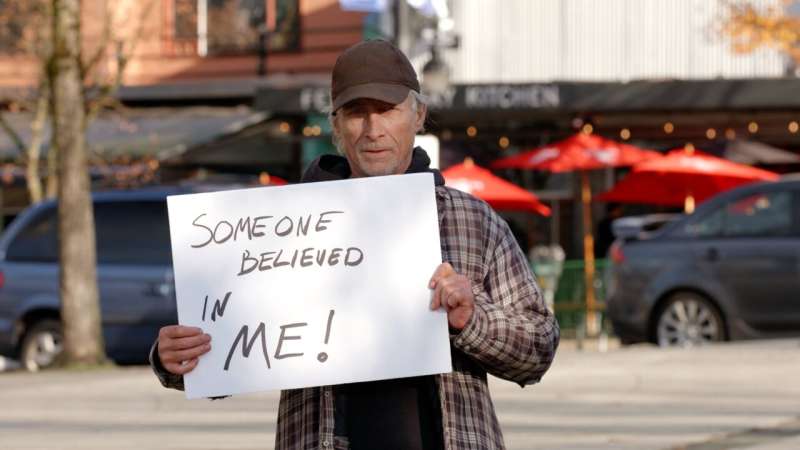
The public has the wrong idea about what homeless people would do after coming into a large amount of money. A University of B.C. study published in the Proceedings of the National Academy of Sciences unveils this stark contrast between public perception and reality when it comes to how homeless people manage their finances.
Participants in a U.S. survey of more than 1,100 people predicted that recipients of an unconditional $7,500 cash transfer would spend 81% more on “temptation goods” such as alcohol, drugs and tobacco if they were homeless than if they were not.
The UBC research team, in close partnership with Foundations for Social Change, actually gave this amount of money to 50 people who were homeless in Vancouver, then compared their spending and outcomes over the following year with a control group of 65 homeless people who did not receive any cash.
Cash recipients spent 99 fewer days homeless, increased their savings, and saved society an average of $777 each by spending less time in shelters. They did not spend more money on temptation goods than the control group did.
The cash transfer worked, but public biases persist.
“The impact of these biases is detrimental,” said Dr. Jiaying Zhao, an associate professor of psychology at UBC who led the study. “When people received the cash transfer, they actually spent it on things that you or I would spend it on—housing, clothing, food, transit—and not on drugs and alcohol.”
The study did not include participants with severe levels of substance use, alcohol use or mental health symptoms, but Dr. Zhao pointed out that most homeless people do not fit these common stereotypes. Rather, they are largely invisible. They sleep in cars or on friends’ couches, and do not abuse substances or alcohol.
The researchers also tried to determine how public perception about cash transfers to homeless people could be changed. They found that the most effective messaging would counter stereotypes by explaining how homeless people actually spend money, or emphasize the utility of cash transfers and the net savings they bring to society.
Canadian lawmakers are considering a bill that would create a national framework for a guaranteed basic income to cover essential living expenses for people in Canada over age 17, including temporary workers, permanent residents and refugee claimants.
Supporters of basic income policies argue that cash transfers help reduce poverty and give people more financial stability during tough times, but critics say they’re too expensive, and the money could be misused or discourage people from working.
“We know that people tend to dehumanize those experiencing homelessness. What’s surprising to me was how large this bias was,” said Dr. Zhao. “Homelessness is such a big problem in North America right now. It’s extremely costly in terms of GDP as well as human lives, and the current approaches to homelessness reduction are not working. That’s why I think it’s important to explore a different approach.”
More information:
Ryan Dwyer et al, Unconditional cash transfers reduce homelessness, Proceedings of the National Academy of Sciences (2023). DOI: 10.1073/pnas.2222103120
Citation:
Study debunks stereotypes about homeless peoples’ spending habits (2023, September 7)
retrieved 7 September 2023
from https://phys.org/news/2023-09-debunks-stereotypes-homeless-peoples-habits.html
This document is subject to copyright. Apart from any fair dealing for the purpose of private study or research, no
part may be reproduced without the written permission. The content is provided for information purposes only.

